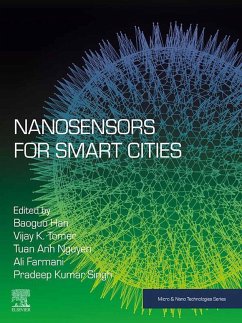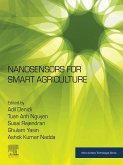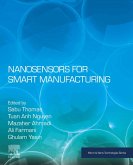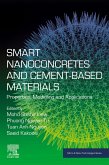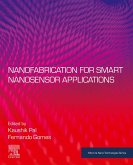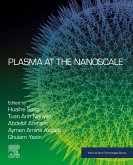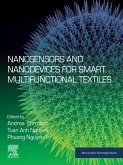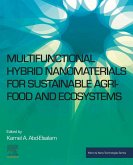Nanomaterials based sensors (nanosensors) can offer many advantages over their microcounterparts, including lower power consumption, high sensitivity, lower concentration of analytes, and smaller interaction distance between object and sensor. With the support of artificial intelligence (AI) tools, such as fuzzy logic, genetic algorithms, neural networks, and ambient-intelligence, sensor systems are becoming smarter.
- Provides information on the fabrication and fundamental design concepts of nanosensors for intelligent systems
- Explores how nanosensors are being used to better monitor and maintain infrastructure services, including street lighting, traffic management and pollution control
- Assesses the challenges for creating nanomaterials-enhanced sensors for mass-market consumer products
Dieser Download kann aus rechtlichen Gründen nur mit Rechnungsadresse in A, B, BG, CY, CZ, D, DK, EW, E, FIN, F, GR, HR, H, IRL, I, LT, L, LR, M, NL, PL, P, R, S, SLO, SK ausgeliefert werden.

